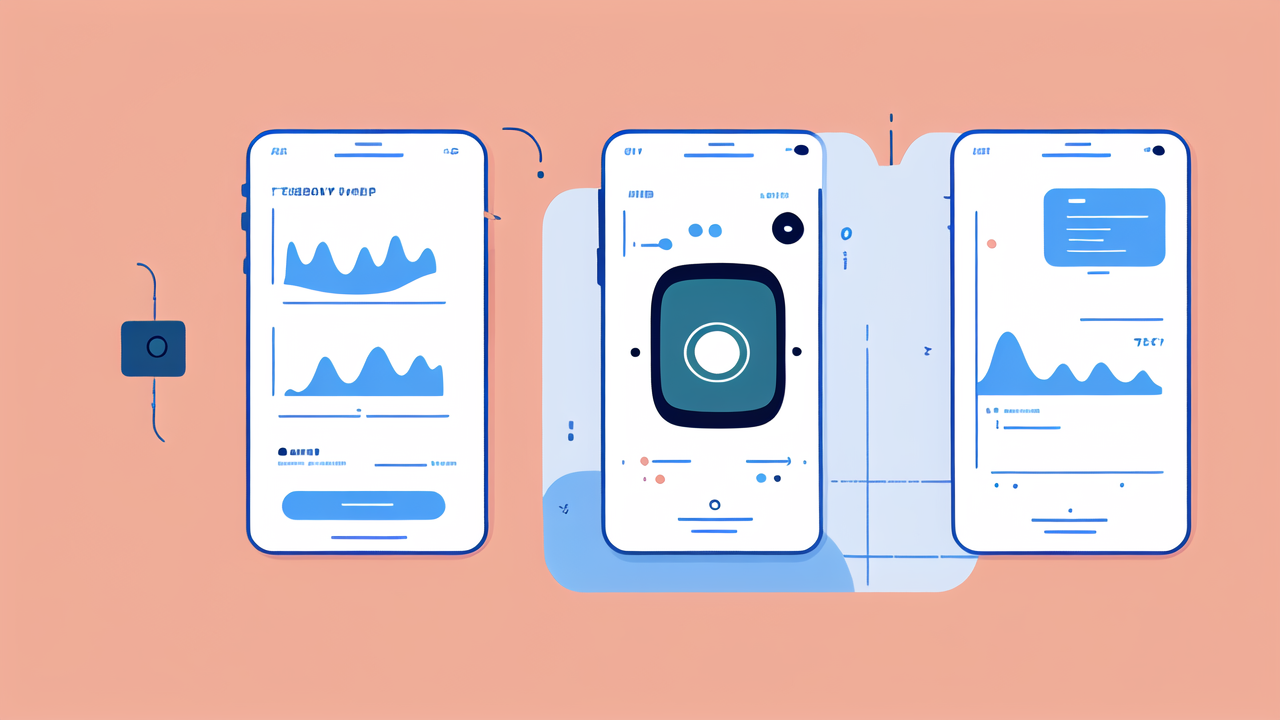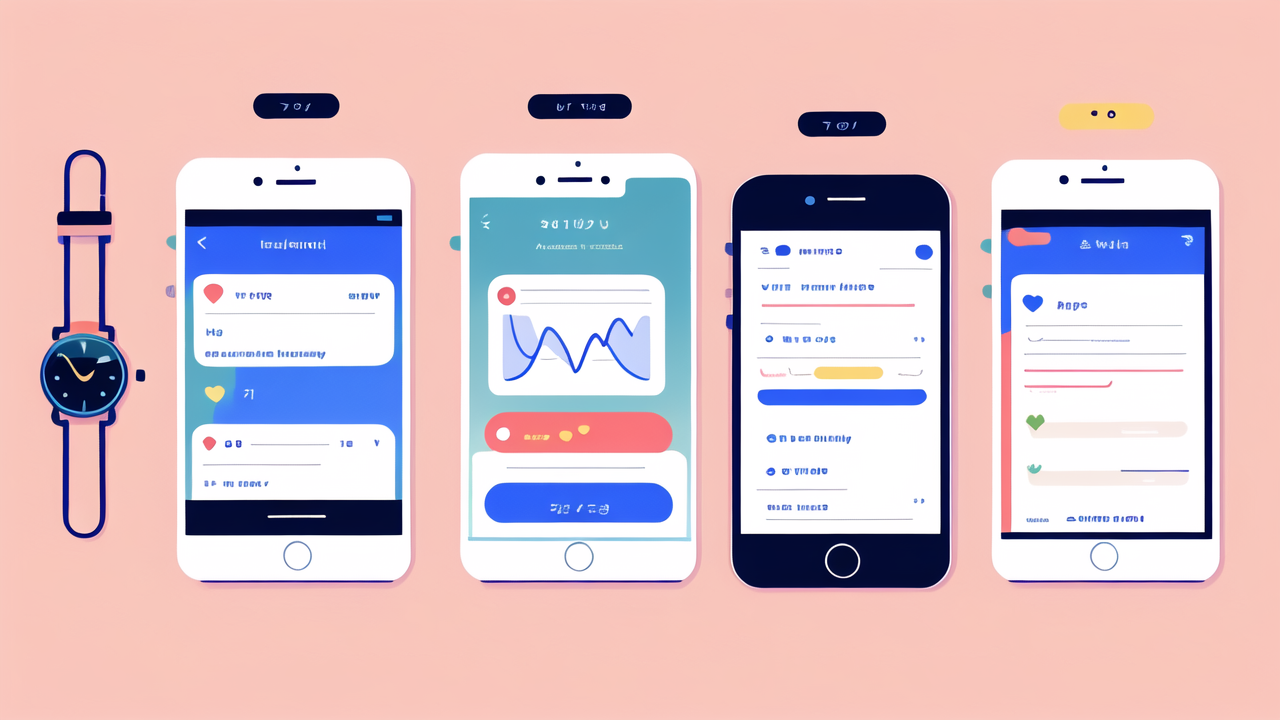Understanding Smart Watches: An Introduction
The Evolution of Smart Watches in the Health Industry
Smart watches have come a long way in the health industry. They started as simple fitness trackers. Now, they're powerful health monitoring devices. Early models only counted steps and calories. Today's smart watches can track heart rate, sleep patterns, and even detect falls.

The tech has improved rapidly. Sensors are more accurate now. Battery life is longer. Screens are clearer and easier to read. Many smart watches can now measure blood oxygen levels. Some can even take ECG readings. This evolution has made them valuable tools for health monitoring.
Key Features of High-Quality Smart Watches
High-quality smart watches have several key features. First, they have accurate sensors. These measure things like heart rate and step count. Good battery life is also crucial. A watch should last at least a day on a single charge.
Water resistance is important for swimmers and athletes. A clear, bright display helps you read data easily. Compatibility with smartphones is a must. Look for watches that work with health apps. GPS is useful for tracking outdoor activities.
Some advanced features include ECG monitoring and fall detection. These can be life-saving in emergencies. Stress tracking and guided breathing exercises are also helpful. Choose a watch with features that match your health goals.
Selecting the Right Smart Watch for Health Monitoring
Important Health Metrics to Track
When choosing a smart watch for health monitoring, consider these key metrics:

- Heart rate: Continuous monitoring can detect irregularities.
- Sleep patterns: Track duration and quality of sleep.
- Step count: Helps measure daily activity levels.
- Calories burned: Useful for weight management.
- Blood oxygen levels: Important for overall health.
- Stress levels: Many watches now offer stress tracking.
- Menstrual cycle: Some watches offer period tracking for women.
- ECG readings: Can detect heart rhythm issues.
Choose a watch that tracks the metrics most important to you. Some people need basic fitness data. Others may want more advanced health monitoring. Think about your health goals when deciding.
Assessing Smart Watch Compatibility with Health Apps
Compatibility with health apps is crucial when choosing a smart watch. Most watches work with their brand's app. But many can also sync with popular health apps. This lets you view all your health data in one place.
Check if the watch works with apps you already use. Common ones include Apple Health, Google Fit, and MyFitnessPal. Some watches also connect to specific health services. For example, some can share data with your doctor.
Look for watches that offer easy data export. This lets you switch apps if needed. Open platforms are best for flexibility. They allow you to use various apps and services. This can help you get the most out of your health data.
Navigating the Market: Top Picks and Recommendations
The smart watch market offers many options. Here are some top picks for health monitoring:
- Apple Watch Series 7: Best overall for iPhone users.
- Fitbit Sense: Great for stress management and general health.
- Garmin Venu 2: Excellent for fitness enthusiasts.
- Samsung Galaxy Watch 4: Top choice for Android users.
- Withings ScanWatch: Good for those who prefer a traditional look.
These watches offer a range of features. The Apple Watch has the most comprehensive health tracking. Fitbit Sense is known for its stress management tools. Garmin excels in fitness tracking. Samsung offers good integration with Android phones.
Choose based on your needs and budget. Consider factors like design, battery life, and extra features. Read reviews and compare specs before deciding. Remember, the best watch is one you'll wear and use regularly.
Implementing and Maximizing Your Smart Watch for Optimal Health
Setting Up Your Smart Watch for Success
Setting up your smart watch correctly is key to getting the most out of it. Start by pairing it with your smartphone. Follow the manufacturer's instructions carefully. Make sure all software is up to date.

Next, set up your health profile. Enter details like age, height, weight, and gender. This helps the watch give more accurate readings. Enable the health features you want to use. Some may need to be turned on manually.
Customize your watch face to show the health data you care about most. This could be step count, heart rate, or calories burned. Set up notifications for things like movement reminders or high heart rate alerts.
Daily Habits for Health Monitoring
To make the most of your smart watch, develop good daily habits:
- Wear it consistently: Put it on first thing in the morning.
- Keep it charged: Make charging part of your nightly routine.
- Check your data regularly: Review your health stats daily.
- Set goals: Use the watch to track progress towards health targets.
- Use reminders: Let the watch prompt you to move or drink water.
- Log activities: Record workouts and other activities accurately.
- Sync data: Make sure your watch syncs with your phone or apps daily.
These habits help ensure you're getting accurate, useful health data. They also help you stay engaged with your health goals. Remember, the watch is a tool. It's most effective when used regularly and thoughtfully.
Advanced Tips for Getting the Most Out of Your Smart Watch
To truly maximize your smart watch for health monitoring, try these advanced tips:
- Use sleep tracking to improve your sleep habits.
- Monitor stress levels and use guided breathing exercises.
- Set up emergency contacts for fall detection or irregular heartbeat alerts.
- Use GPS to track and improve your running or cycling routes.
- Connect with friends for fitness challenges and motivation.
- Explore third-party apps that enhance your watch's capabilities.
- Use your watch's data to have more informed discussions with your doctor.
Remember to regularly review and adjust your health goals. Your smart watch can provide valuable insights. Use this data to make positive changes in your lifestyle. With consistent use and attention, your smart watch can be a powerful tool for better health.




Leave a comment
This site is protected by hCaptcha and the hCaptcha Privacy Policy and Terms of Service apply.